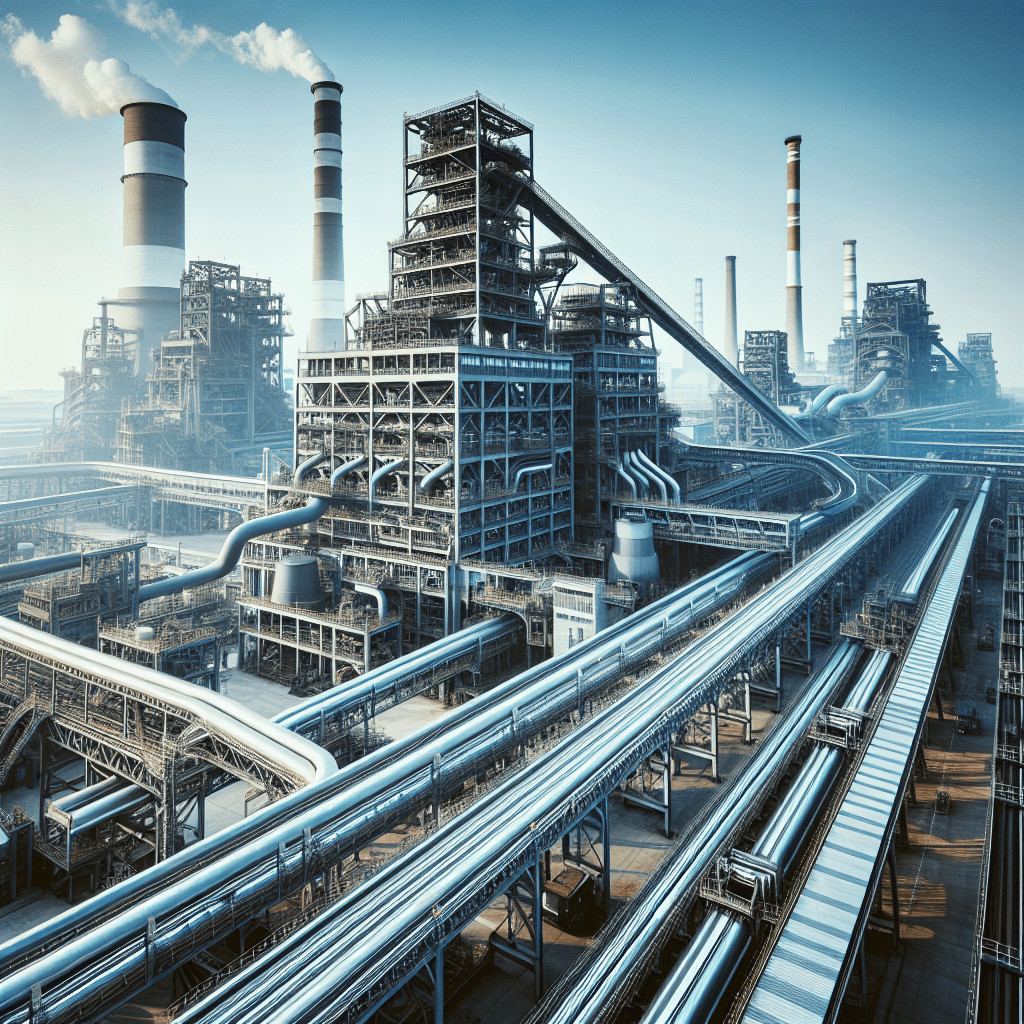Tata Steel: An Overview of a Global Industry Giant
Tata Steel Limited, established in 1907 by Jamsetji Tata, is one of the leading steel manufacturing companies globally. With its heritage intimately connected to India’s industrialization, Tata Steel has expanded far beyond its original base, becoming a multinational enterprise with significant operations in countries such as the Netherlands and the United Kingdom through acquisitions like the European steel giant Corus in 2007.
The History and Growth of Tata Steel
Early Beginnings
The foundations of Tata Steel lie in the aspirational vision of Jamsetji Tata, who envisioned India’s self-sufficiency in steel production. The company began its operations in Jamshedpur, India, overcoming technological and logistical challenges to begin producing steel in a relatively short amount of time. Known initially as Tata Iron and Steel Company (TISCO), it was the first integrated steel plant in Asia outside Russia, pioneering several initiatives and setting standards for industrial processes in the country.
Diversification and Global Expansion
Post-independence, the company expanded its product range, produced crude steel, introduced various alloys, and developed service offerings aligned with the changing demand. The turn of the century marked a significant phase as Tata Steel, banked on globalization, acquiring firms such as NatSteel Asia and Millennium Steel (later renamed Tata Steel Thailand). However, its most significant acquisition was that of Corus Group in 2007, catalyzing its leap onto the global stage and making it among the world’s top steel producers.
Innovations and Sustainable Practices
As environmental concerns became increasingly important, Tata Steel emphasized sustainable practices such as reducing carbon footprints and instituting energy-efficient protocols. Innovation labs focused on developing advanced material compositions signified the company promoting innovation across all aspects. Beyond just manufacturing, Tata Steel has involved itself in services connected with steel production such as raw material mining, thus broadly increasing its area of influence within the industry.
Current Market Status and Operations
Today, Tata Steel is not just a domestic powerhouse but a reputable name in global steel production. Their product portfolio extends from steel for construction and infrastructure to specialty steels used in various high-end applications including automotive, packaging, rail tracks and more. Their manufacturing facilities spread over various continents catering to premium markets in Europe and Asia.
Business Model and Corporate Philosophy
A Holistic Approach to Business
Tata Steel’s business model reflects a balance between scalability and sustainability. While prioritizing growth through aggressive market expansion strategies globally, it maintains an equal emphasis on social responsibility and environmental consciousness. The company’s ethos rests on driving innovation while giving back to society—a principle deeply rooted within the broader Tata conglomerate.
Empowering Employees and Communities
Recognizing employees as vital assets has been an intrinsic practice resulting in extensive programs for skill enhancement and leadership development. Additionally, their proactive engagements within local communities where they operate reveal their commitment to holistic development beyond corporate achievements.
Challenges and Resilience in a Dynamic Industry
Dealing with Market Volatility
Despite leading the sector in several regions globally, Tata Steel has faced significant challenges from fluctuating raw material costs, global economic instability impacting demand-supply paradigms, and competition both regionally with other local players and internationally. Adapting quickly to such factors is quintessential for sustaining market leadership.
Navigating Through Regulatory Norms
As governments across countries implement stringent environmental rules and trade protections (like tariffs), Tata Steel’s ability to navigate these hurdles testament to its resilience. The regulatory environment Variously impacts mergers, expansions, new developments—and by staying compliant while promoting responsible business practices—Tata steel futures forward.
Technological Progression & Automation
Technological advancements have also made it imperative for steel manufacturers to innovate consistently in their processes. Embracing Industry 4.0 for intelligent manufacturing processes aids indecision making improved quality control while optimizing costs through levels of automation not seen previously within this sector.
Notes
*Image Description:*
“A vast industrial complex stretches under clear skies representing a Tata Steel manufacturing plant; megastructures housing furnaces, chimneys emitting minimal fumes symbolize sustainable practices amidst conveyor belts lined with finished steel rooting off towards transport trucks poised for dispatch.”
